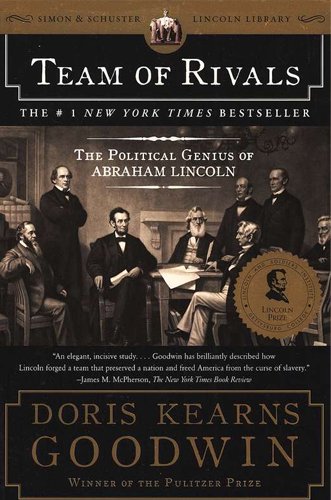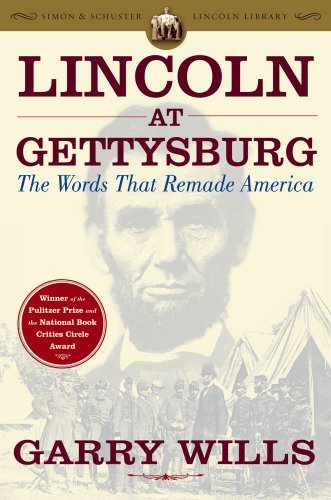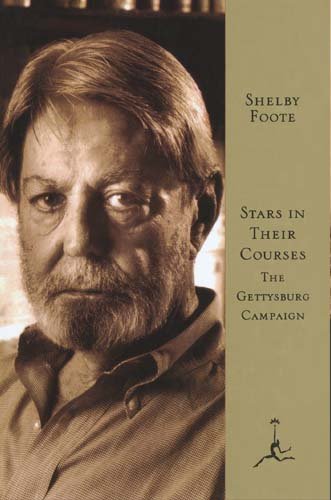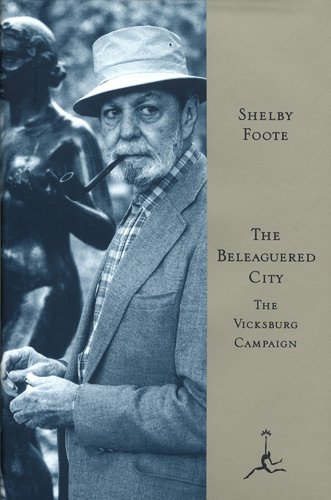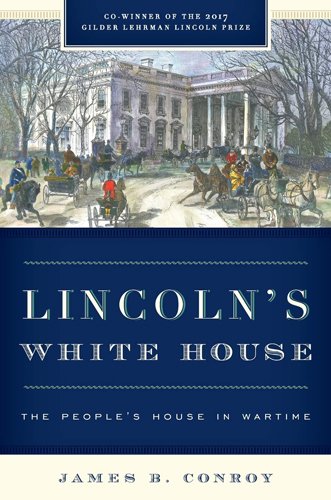12 Books
Under Lincoln’s Hat:
100 Objects that Tell the Story of His Life and Legacy
By James M. Cornelius and Carla Knorowski
The Abraham Lincoln Presidential Library Foundation
This book is a great place to start, providing as it does an interesting, intimate look at Lincoln and his life through the everyday objects Lincoln touched, from a letter he wrote his ne’er do well stepbrother to the stovepipe hat in which he kept important papers (a habit from his early career as a country lawyer riding the circuit in Illinois). The descriptions are brief, the objects carefully chosen, and the overall effect is to illuminate Lincoln’s path from a poor back-country childhood to the supreme executive position in the country without being overwhelmed by the minutia that accompanies the typical Lincoln biography.
Team of Rivals: The Political Genius of Abraham Lincoln
Doris Kearns Goodwin
Simon and Schuster
This popular account of Lincoln’s employment of the Godfather’s advice to “keep your friends close and your enemies closer” is an accessible history of Lincoln’s presidency. His cabinet—the so-called “team of rivals” of the title—was comprised of some of the very men he had defeated in his quest for the 1860 Republican nomination, and to his great credit Lincoln found ways to utilize their abilities towards his overarching goal of saving the Union.
The downside to such an accessible history is that myths and legends are repeated without much scrutiny. (For example, the Gettysburg Address was not likely composed on the train to Gettysburg; Lincoln probably did not call the speech a “flat failure”; Edwin M. Stanton very probably never said “Now he belongs to the ages” at Lincoln’s deathbed, etc.)
That quibble aside, this is well worth reading.
Lincoln at Gettysburg: The Words that Remade America
By Garry Wills
Simon & Schuster Lincoln Library
In contrast to Team of Rivals, Lincoln at Gettysburg is a marvel of scholarship, answering in detail the question of precisely how Lincoln accomplished what he did in those “few appropriate remarks” at the Gettysburg cemetery—a speech that took less than three minutes to make but which changed the American cause for all time. This is not a long book, and it’s not always light reading, but it’s very well researched and beautifully written.
If there is one speech that was worth an entire book, that’s the speech and this is the book.
Abraham Lincoln and Making a Case
Joseph F. Roda
AuthorHouse
I picked up this slim volume at The Book Loft in Fernandina Beach, Florida, and it is a gem. Written by a retired attorney who has made a second career of lecturing about Lincoln’s remarkable ability at persuasion—whether in a courtroom or in the White House—it is filled with quotes from Lincoln throughout each phase of his life that demonstrate his ability to formulate his thoughts and sell his ideas.
Scrupulously annotated, the book answers the question that is easy to overlook in a largescale biography of Lincoln: how did a country lawyer use his unique abilities at persuasion and storytelling to reach the White House and guide the country through four years of Civil War, emancipation and the restoration of the Union?
Reminiscences of Abraham Lincoln by Distinguished Men of this Time
By Allen Thorndike Rice, Editor
Franklin Classics Trade Press
Not the most politically correct title, of course, but this collection of first-hand stories from those who knew Lincoln brings him to life more effectively than any slick biography can do. The “distinguished men” range from General Ulysses S. Grant to poet Walt Whitman, and their memories of first meetings and final encounters with Lincoln strip the Machiavellian veneer that historians sometimes overlay on a man who—like another figure from history—employed parables, not diatribes, to make his case.
NB: this book is in the public domain and available online, but you’ll want a copy on hand to pick up when the spirit moves. The cover above is from the original edition published in 1886 by North American Pub. Co.
Grant
By Ron Chernow
Penguin Books
This study of Lincoln’s favorite general, Ulysses S. Grant (the “S” didn’t stand for anything), is a delight, and well worth reading to understand the one general who gave Lincoln what he wanted in the field—which is why Lincoln stood by Grant when those around him were ready to give up on him.
Chernow may be the one historian who could add a worthwhile biography of Abraham Lincoln to that very crowded section of the library bookshelf—but, in its absence, Grant will do.
The Civil War: A Narrative
Shelby Foote
Knopf Doubleday Publishing Group
A classic that will place Lincoln in a much fuller context than any biography will do, but you better be ready to commit to all three volumes. The author was a poet and novelist from the Deep South who crafted—as the title makes clear—a narrative of the war that weaves together politics, economics, international relations, psychology and, of course, battles great and small so effortlessly that you’ll stay with it even during the boring bits (not all Civil War battles were dramatic set-pieces like Gettysburg).
I suggest listening to the audio version, which is wonderfully read by Grover Gardner—but if you can’t commit to that 152-hour opus, go with either (or both) of two shorter audiobooks carved out from the original three volumes, with author Shelby Foote himself reading in a beautiful, gravelly drawl. (See the next two titles.)
Stars in Their Courses: The Gettysburg Campaign, June-July 1863
Shelby Foote
Modern Library
The Gettysburg campaign was Robert E. Lee’s second and last invasion of the North, and the three-day battle near the little Pennsylvania college town was intense and dramatic. Lee lost, Meade won, and the battle over Little Round Top remains a thrilling turning point in American history.
Gettysburg is often called the high watermark of the Confederacy, and for good reason. Lee retreated south across the Potomac and never tried it again.
The Beleaguered City: The Vicksburg Campaign,
December 1862-July 1863
Shelby Foote
Modern Library
The capture of Vicksburg by Ulysses S. Grant did not receive the extensive newspaper coverage of Gettysburg, but Grant’s success against difficulties unsurpassed in the Eastern theater established his credentials as one of the most enterprising generals on either side of the conflict. Grant captured the heavily armed Confederate city overlooking the Mississippi River after a long, unorthodox, improvisational campaign, thereby opening that river to the wheat exports of the western states and closing it to the cotton exports of the Confederacy.
Best of all, Vicksburg surrendered on July 4, 1863—the day after Meade defeated Lee at Gettysburg.
Lincoln’s White House: The People’s House in Wartime
James B. Conroy
Rowman & Littlefield Publishers
Another book by an attorney, this one providing a fascinating look inside the Lincoln White House during the Civil War, from the terrible well-water (from which Lincoln’s son Willie contracted typhus and died) to the unceasing demands on Lincoln’s time (in those days, callers had merely to show up in order for the President to see them).
Inside Lincoln’s White House:
The Complete Civil War Diary of John Hay
Edited by Michael Burlingame and John R. Turner Ettlinger
Southern Illinois University Press
Another “you are there” memoir from a man who was there, from beginning to end. Hay’s memory is also the most grounded in reality that I’ve read. He saw Lincoln every day, in every condition, with all manner of interloper, and often behind closed doors. The range of problems that came to Lincoln’s attention—from raw, petty political maneuvering for obscure positions to weighty matters of international relations such as the Trent Affair—is astonishing.
Narrative of the Life of Frederick Douglass
Frederick Douglass
Independently published
The famed abolitionist’s own story of how he escaped slavery and became one of its fiercest and most effective opponents helps us understand Lincoln even better than a biography of Lincoln alone.
Douglass’s very public criticisms of the unfair treatment of Black soldiers in the Union army led to an invitation to the White House from Lincoln—an unprecedented event—and the story of how a mutual respect developed from that meeting is vital to understanding Lincoln’s legacy.
Slave Narratives from the Federal Writers’ Project, 1936-1938
Federal Writers’ Project
Applewood Books
In the 1930’s some very bright person at the Works Progress Administration (WPA) decided the memories of former slaves should be written down before they had perished from the earth, and writers from the Federal Writers’ Project fanned out across 17 states to interview thousands of former slaves.
Their recollections of life under slavery and life after freedom are invaluable to grasp why a Civil War was fought over the institution; how Lincoln’s Emancipation Proclamation changed their lives; and why so-called Reconstruction largely failed them.

